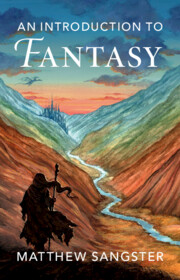Book contents
- An Introduction to Fantasy
- An Introduction to Fantasy
- Copyright page
- Contents
- Figures
- Introduction
- 1 Fantasy, Language and the Shaping of Culture
- 2 The Value of Iteration
- 3 Root Formations
- 4 Enlightenment and its Shadows
- 5 Fashioning Worlds
- 6 Fantastic Communities and Common Ground
- Envoi
- Acknowledgements
- Select Bibliography
- Index
5 - Fashioning Worlds
Published online by Cambridge University Press: 07 October 2023
- An Introduction to Fantasy
- An Introduction to Fantasy
- Copyright page
- Contents
- Figures
- Introduction
- 1 Fantasy, Language and the Shaping of Culture
- 2 The Value of Iteration
- 3 Root Formations
- 4 Enlightenment and its Shadows
- 5 Fashioning Worlds
- 6 Fantastic Communities and Common Ground
- Envoi
- Acknowledgements
- Select Bibliography
- Index
Summary
While there are a few older examples of fantasies that create secondary worlds imaginatively separate from the Earth we know, such building projects became increasingly prevalent during the twentieth century. World-building is seen as one of the quintessential activities of contemporary Fantasy. Consequently, this chapter considers what fantasies, their creators and their audiences gain from imagining new worlds. It begins by examining J. R. R. Tolkien’s arguments about the importance of consistency and immersion in sub-creation, while also considering alternative views articulated by writers including Michael Saler, André Breton and H. P. Lovecraft. After drawing out the wide applicability of the world-building metaphor in conversation with work by Farah Mendlesohn, the chapter explores the metaphor’s limitations by looking at examples drawn from Michael Moorcock and Fredric Jameson. The second part of the chapter explores a wide range of world-building techniques using case studies that include Margaret Cavendish’s The Blazing World, E. R. Eddison’s The Worm Ouroboros, Mervyn Peake’s Gormenghast series, Nghi Vo’s The Empress of Salt and Fortune, Fantasy television, Planescape: Torment and Elden Ring.
Keywords
Information
- Type
- Chapter
- Information
- An Introduction to Fantasy , pp. 298 - 373Publisher: Cambridge University PressPrint publication year: 2023
